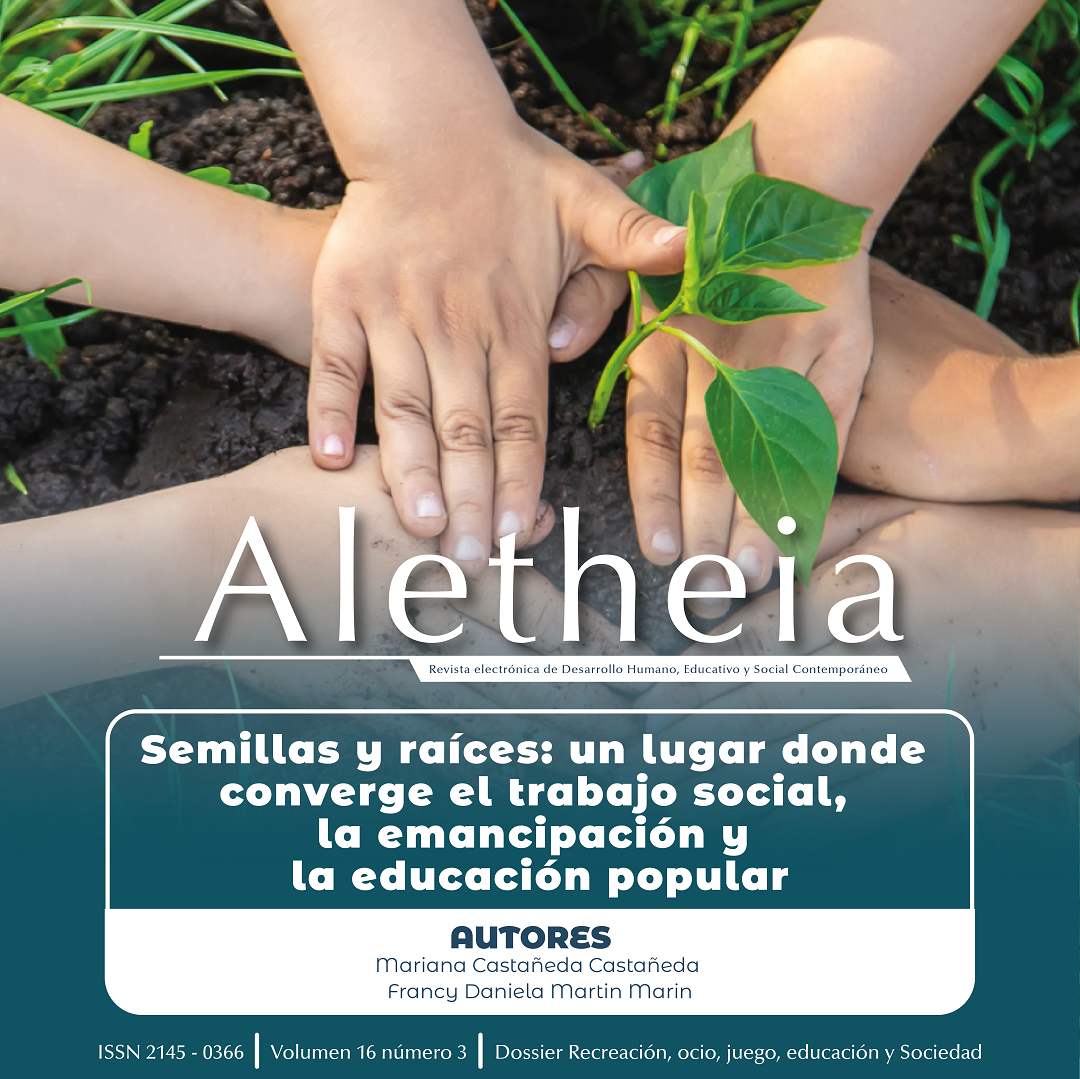Seeds and roots a place where social work, emancipation and popular education converge
Main Article Content
Abstract
This article aims to articulate philosophical knowledge to social work, linking it with the "Semillas y Raíces" (Seeds and Roots) Foundation located in Commune 4 (Altos de Cazucá) in Soacha, Colombia. The community processes that occur in this non-profit are emancipatory, due to their political and aesthetic factors. The political is viewed through the lens of participation and visibility in other spaces, while the aesthetic involves the transformation of spaces and structures through artistic interventions, which in turn generates a new way of seeing the world through a new distribution of sensorial experiences. The work carried out by “Semillas y Raíces” is focused on popular education, given that it creates a different meeting place for learning and teaching while focused on the construction of the corporalities of the children and adolescents who are part of this organization.
Downloads
Article Details
Issue
Section

This work is licensed under a Creative Commons Attribution-NonCommercial 4.0 International License.
Authors publishing in this journal agree to the following terms: a. The authors retainthe copyright to the journal and ensure the right to be the first publication of work asLicensed under a Creative Commons Attribution License that allows others toshare the work with an acknowledgment of the authorship of the work and the initial publication in this magazine. b. Authors may establish separate additional agreements to the non-exclusive distribution of the version of the work published inthe journal (for example, place it in an institutional repository or publish it in a book),with an acknowledgment of its initial publication in this journal. c. It allows and encourages authors to disseminate their work electronically (eg, in institutional repositories or on their own website) before and during the submission process,as it can lead to productive exchanges, as well as a subpoena more early andmost of the published (See The Effect of Open Access) (in English).
References
Alonso, L. (1999). Sujeto y discurso: el lugar de la entrevista abierta en las prácticas de la sociología cualitativa. En
Delgado, J y Gutiérrez, J Métodos y técnicas cualitativas de investigación en ciencias sociales. Madrid. Editorial Síntesis. pp. 225-239.
Alcaldía de Soacha. (2015). http://www.soacha-cundinamarca.gov.co/informacion_general.shtml
Huerta, J. (1997). Los grupos focales. Universidad de Puerto Rico, Recinto de Mayagüez, Colegio de Ciencias Agrícolas, Servicio de Extensión Agrícola. Tomado de: https://www.academia.edu/download/32128912/Grupo_Focal.pdf
Freire, P. (1968). Pedagogía del oprimido. Siglo XXI Argentina.
Mejía, M. (2015). La educación popular en el siglo XXI. Una resistencia intercultural desde el sur y desde abajo. Praxis & Saber, 6(12), 97-128. Tomado de: http://www.scielo.org.co/scielo.php?pid=S2216-01592015000200006&script=sci_arttext DOI: https://doi.org/10.19053/22160159.3765
Marina, J. (1998). Corporalidad y educación.
Moreno, C. (2022) El despertar de Eva: Una comprensión del suicidio en jóvenes indígenas en
los internados del Vaupés.
Quintana, L. (2020). Política de los cuerpos. Emancipaciones desde y más allá de Jacques Ranciére. Pontificia Universidad Javeriana. DOI: https://doi.org/10.2307/j.ctv11qdwc8
Quintero, G. (2010). Estrategias de educación popular. Ministerio del poder popular para
Ciencia, Tecnología e Industria.
Ranciere, J. (1996). El desacuerdo: Política y filosofía. Ediciones Nueva visión.
Ranciere, J. (2007). El maestro ignorante. Libros del Zorzal.
